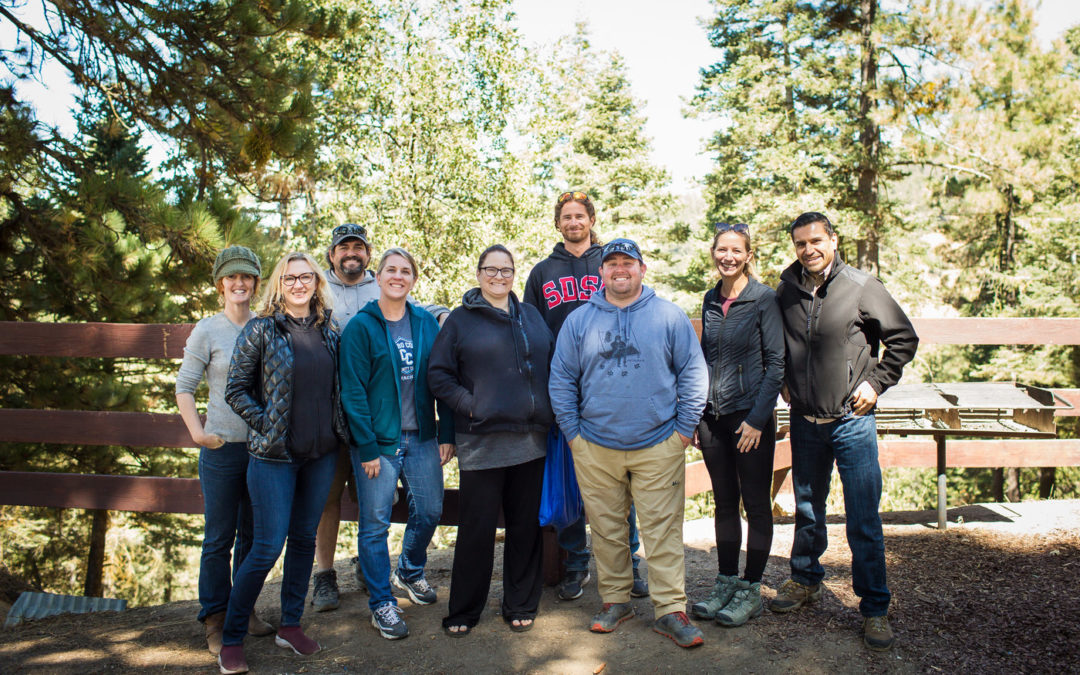A group of higher education in prison faculty leaders joined together for a retreat in 2019 to discuss best practices and launching a statewide training.
Higher education in prison (HEP) programs have grown significantly since 2015. Five years ago, not a single California community college offered face-to-face teaching in prison. Today, 34 out of 35 prisons are partnered with community colleges and provide face-to-face Associate Degree for Transfer pathways to over 6,000 incarcerated students. While this remarkable growth has been a real boon to the students served by roughly 200 faculty members, the speed of the change over such a short period of time has resulted in gaps in training.
Sustainable HEP programs require well-trained instructors who understand the needs of incarcerated students and how to navigate around their trauma. Proper training also reduces faculty turnover, as being prepared to teach in a prison environment dramatically increases the chances that a faculty member will remain engaged in this work for many years.
According to a recent needs assessment survey conducted by California HEP faculty, instructors are clamoring for greater professional development. One respondent stated, “I have had no formal training at all for teaching in prison…Training in trauma-informed, or better healing-centered teaching would be helpful.”
Michelson 20MM recently awarded the Foundation for California Community Colleges (FCCC) and the Academic Senate for California Community Colleges (ASCCC) a Michelson Spark Grant to address the gap in HEP faculty professional development. The grant will contribute to the development and distribution of high-quality, openly licensed training materials to support California Community Colleges faculty members serving students in prisons and jails.
These materials will include training modules focused on pedagogy in a correctional facility, shortening a teaching semester for jail settings, and understanding the differences and similarities of teaching in a prison setting. The training will also teach instructors how to build rapport while maintaining policy in HEP programs, understand inherent carceral environment demands on students, and utilize open educational resources during instruction to lower the cost of a student’s education. The development of these resources will culminate in statewide HEP faculty training. This instruction is easily translatable to traditional classrooms, supporting faculty in applicable professional development.
At the forefront of this development effort are Cerro Coso Community College professors Alec Griffin and Peter Fulks. The two have been actively engaged HEP practitioners since the 2016-2017 school year at their institution. During that time, they counseled and open sourced written policies and best practices collaboratively with academic institutions, nonprofits, and changemakers working in government. Together, the duo has brought the fringe field of HEP in California to the mainstream, presented at multiple national conferences on Higher Education in Prison, and received numerous awards for their groundbreaking work.
Partnering with the FCCC, ASCCC, and Cerro Coso Community College faculty leaders on this HEP faculty training will support high-quality instruction for students in prison. Additionally, this project will increase teacher retention for the field. As openly licensed materials, these resources will be widely accessible to aid instructors not only at community college systems in California but throughout the country.
The Michelson 20MM Foundation was founded thanks to the generous support of renowned spinal surgeon and inventor Dr. Gary K. Michelson and his wife, Alya Michelson. Michelson 20MM is dedicated to supporting and investing in leading organizations, technologies, and initiatives that seek to transform learning and improve access to educational opportunities that lead to a meaningful career. Learn more at www.20mm.org.
